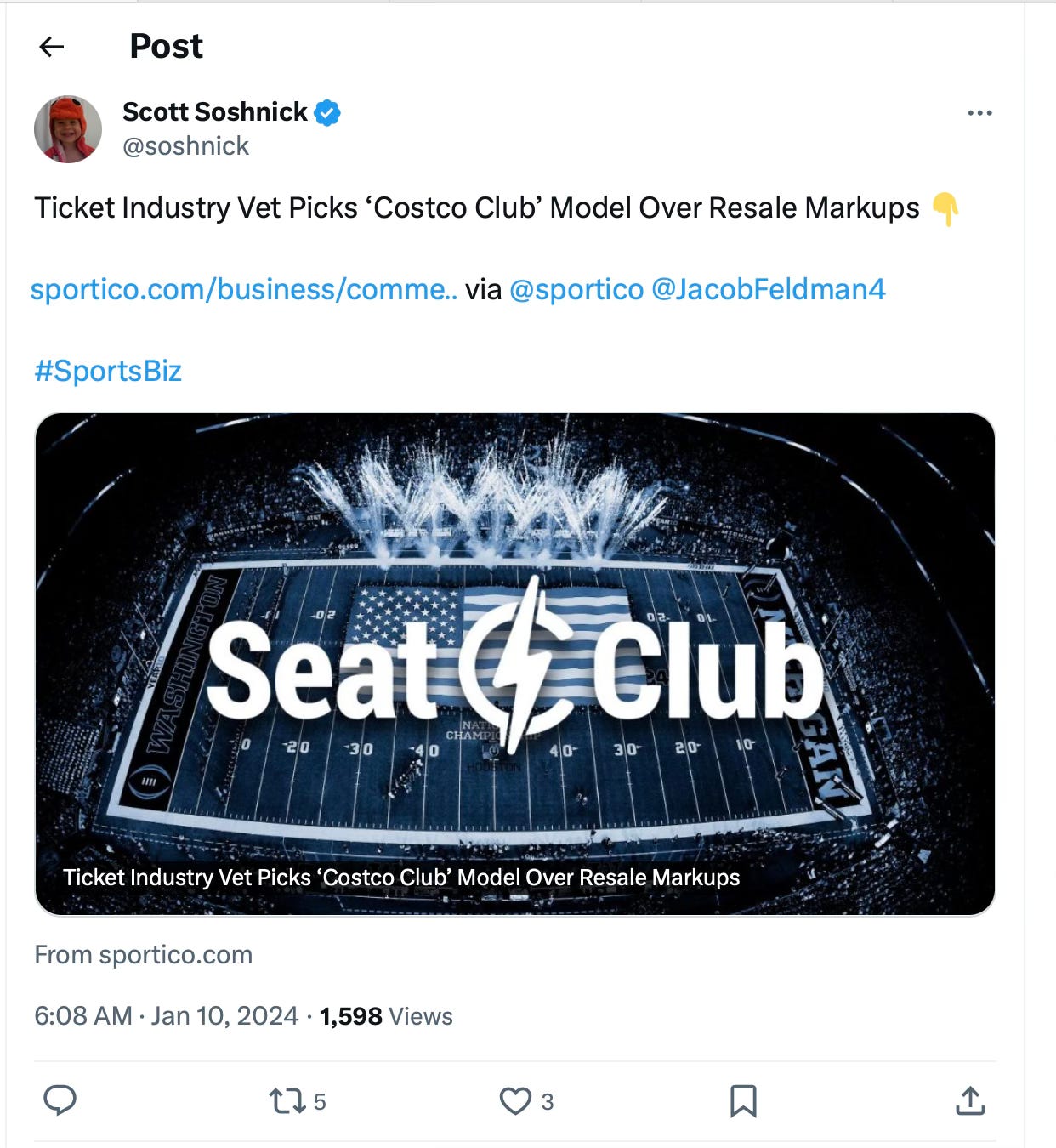Good day!
Another experiment today because I am going to share the content of a Twitter thread I posted in the newsletter because it is strategy breakdown of a new ticketing platform that someone asked me about this morning.
The tweet that started it all:
To make something like this work, is going to take tens of millions of dollars in #marketing.
Even then, I don't know that there is really a market for this at the scale that would be necessary to make it profitable.
It seems to be the classic form of "product orientation" and someone going, "I know what people want because this is what I want..."
What I teach customers and students, "You are not the customer."
For the $99 fee idea to work, you have a few obstacles to overcome:
1. Do people know you exist?
Right now, I'm guessing that total market penetration is under 1% and probably less than 20% in the entire ticket industry.
2. What does your market segmentation really look like?
Meaning, are there enough potential customers that are heavy enough buyers to know you exist, buy enough to make it work, and buy tickets enough to make it profitable?
3. Who is the customer?
Why are they picking you over the alternatives?
Do you really even know who your competitive set is?
There's no shame in the answer being "no".
In most cases, none of us are that certain who we are competing with. We think we know.
Most of the time we are dead wrong.
4. How are we going to position ourselves?
The idea of a cheaper and easier ticket buyer experience is great.
My research in the market tells me that this is something people will value.
What I don't know is about the value of a subscription to access tickets?
Besides #tickets, is there another level of service?
Is there more value baked into the platform?
Why is this valuable outside of the ability to access tickets, which from research, I know people don't really value as a whole. (They take it as a given now with all of the different websites and platforms.)
They might for a specific band or artist.
But for the entire class of "tickets"...
I've never seen research that supports that position.
I've looked at it as a part of other startups.
5. What about the #marketing mix here?
Why $99? What backs up that price point?
How was that price set?
What are potential customers using as a consideration set here?
How is the price being anchored?
35% savings seems great, but compared to what?
These kinds of esoteric comparisons don't move customers to buy.
Then you have the product?
If it is just the website, that makes it harder sell.
The "subscription service" model of Costco or others works as well because there is something that people can touch as part of the experience.
Will people feel the same way about #tickets?
Then, the big issue: promotion.
How are you going to reach potential customers?
It is going to take a full funnel brand building effort that is expensive and will take time.
It is likely that the brand effort here would start to pay off after 2 or 3 years.
A few folks asked me about this...and I'm curious to see how the model develops, but from my POV:
Is there a large enough market of "heavy" buyers that will find this and buy it?
If there is: why are they picking this platform over another platform like TickPick?
Again, customer acquisition is a fickle thing and people don't value the same things that you or I might value.
So we have to do the research and set ourselves up as a solution to the problem the customer has, not one we think the customer will have.
What do you think?
Am I off base here?
Let me know by replying to this email or leaving a message in our Slack Channel.
Do me a favor and share this with one friend or colleague that is trying to think about breaking down a business model?
Or, share with your connections on social media!
See you soon!
Dave



